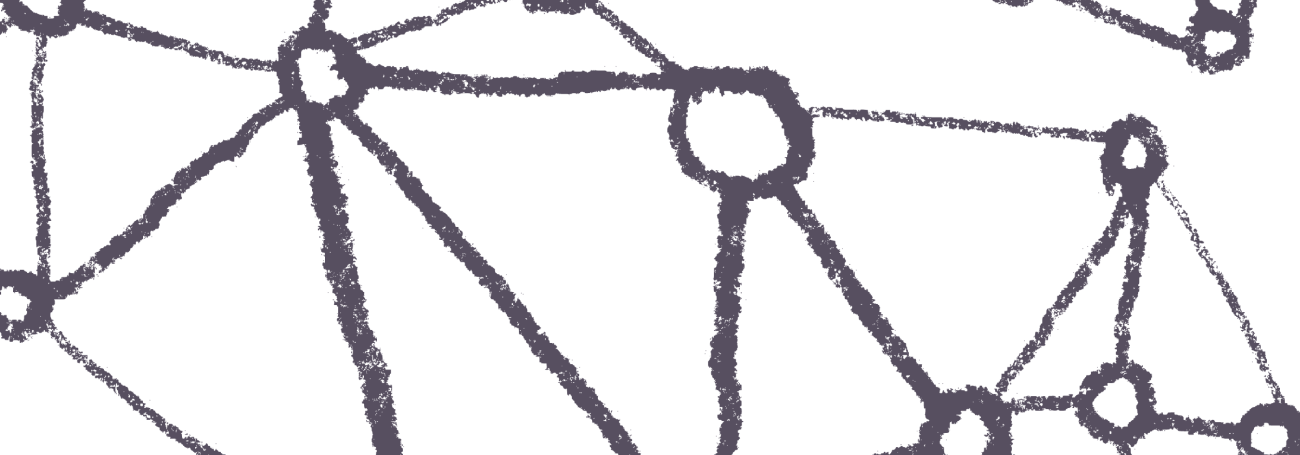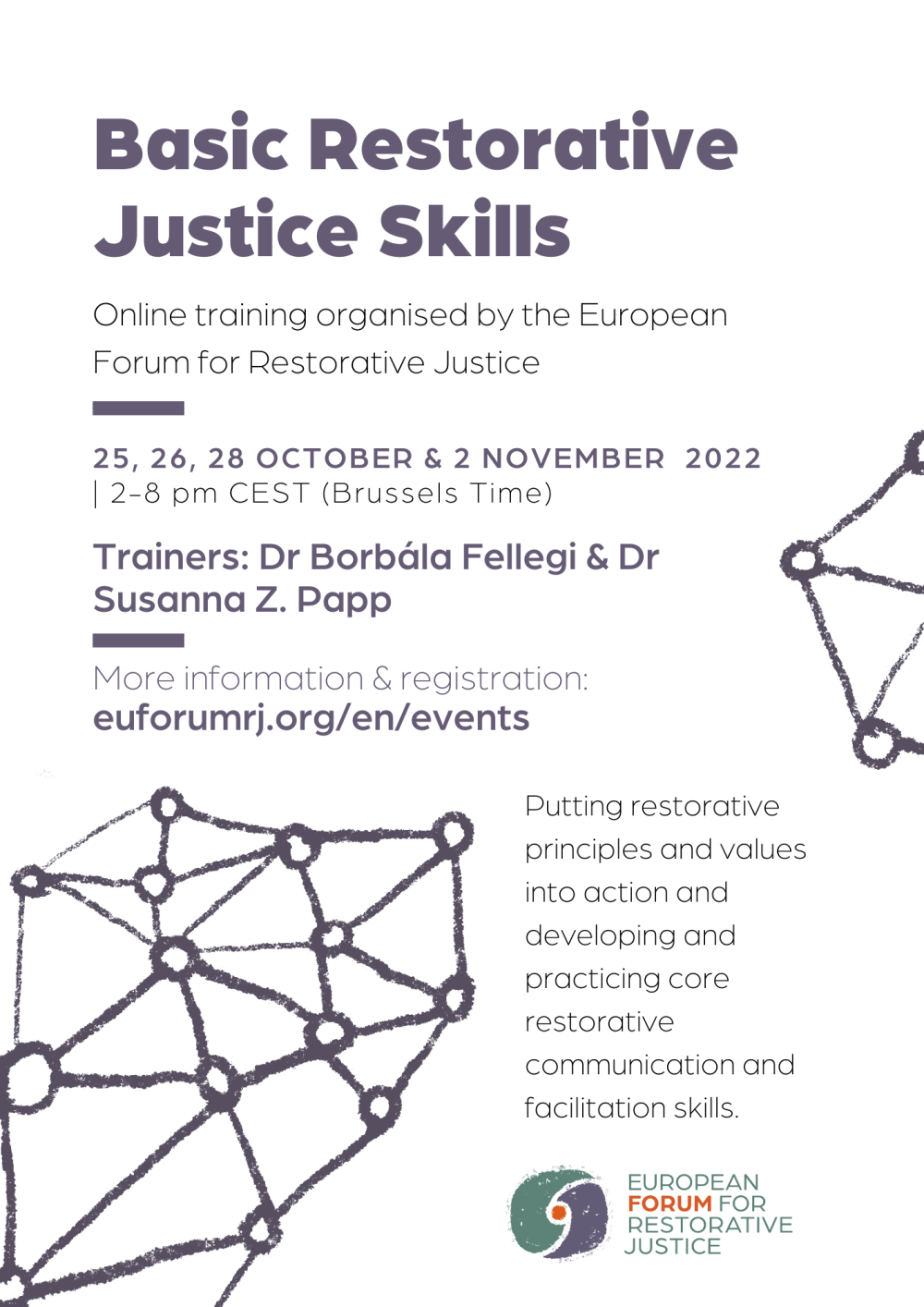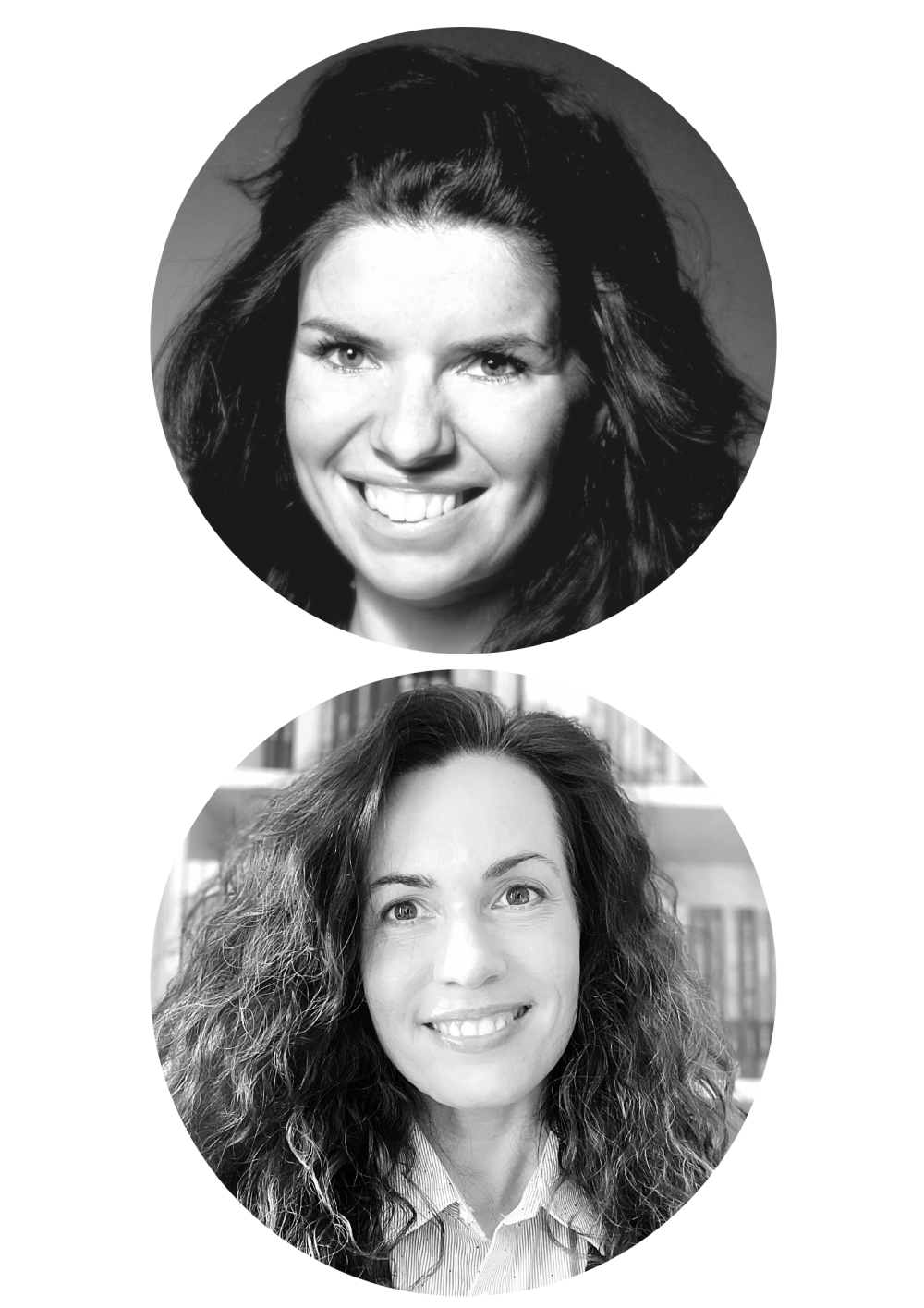
This training course is designed for anyone wanting to use or refresh their restorative skills in their work – whether in conversations, preparing for and facilitating restorative meetings or for running circles. The course is open to everyone who wants to learn the foundational skills essential for restorative justice, restorative practice or for those who wish to refresh their knowledge in the subject. It may be especially relevant for teachers, social workers, psychologists, healthcare practitioners, community activists, and professionals working within the criminal justice system.
The course is not designed to provide a license to become a certified conference or circle facilitator. For this you would need to check the local requirements in your country and fulfil a training programme that is accredited there. At the moment there is no accreditation that is recognised across Europe, and the EFRJ aims to deliver practice-oriented training that may be beneficial in various environments.



